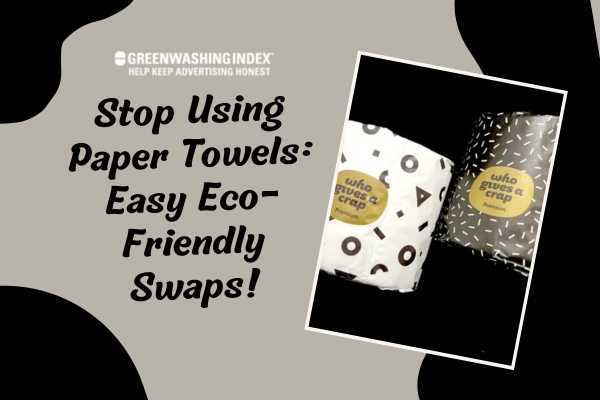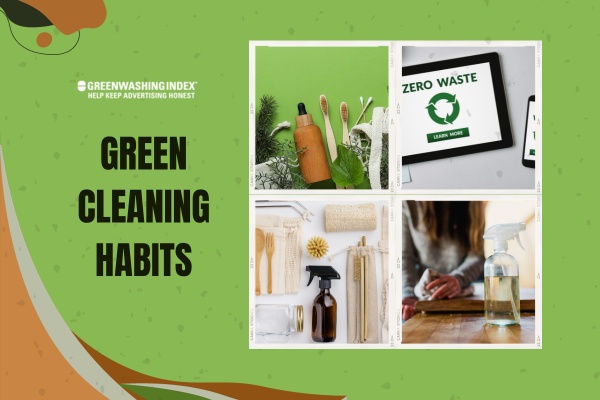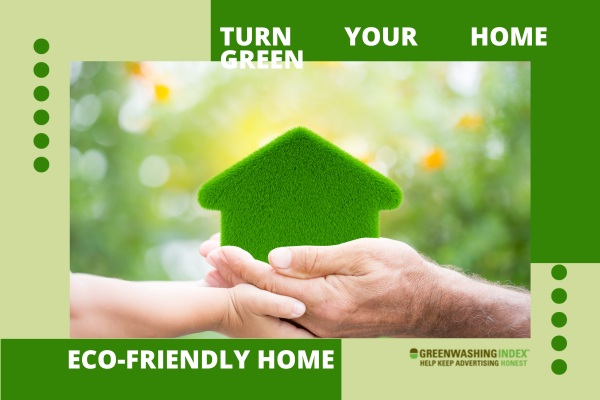Ever thought about how much waste comes from using paper towels? If you’re like me, you’ve probably pulled off a sheet without a second thought, whether it’s to dry your hands or wipe down the kitchen counter. But let’s take a moment here—each pull adds up, and before we know it, we contribute to a pile of waste that affects our Earth.
I’m on the journey to rethinking these everyday habits and exploring eco-friendly lifestyles that help us stop using paper towels. Join me, won’t you? Let’s find out how easy it can be to make simple changes with big impacts.
The solution starts with reaching for alternatives that are sustainable and reusable. To stop using paper towels, swap them out for cloths and sponges you can wash and use again, or try high-tech solutions like an air dryer for dishes.
It might seem small at first glance, but think of the trees and water we’ll save in the long run! Plus, just imagine spending less money on household items—more savings while doing good for our planet sounds like a great deal to me.
The Impact of Paper Towel Usage
When I think about how to stop using paper towels, I can’t help but consider the huge impact they have on our planet. Stopping the use of paper towels isn’t just a small change in household habits; it’s a step towards a more eco-friendly lifestyle.
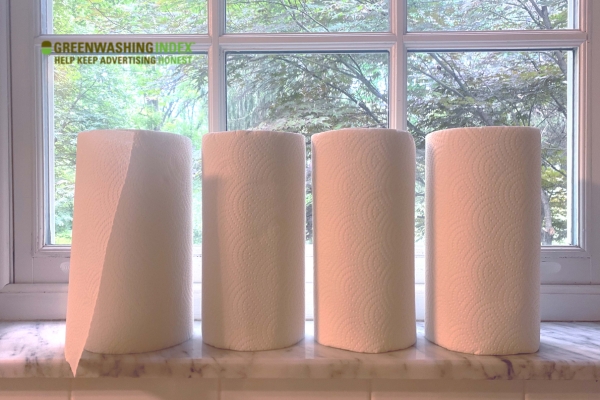
Environmental Toll
I’ve seen how using lots of paper towels can really hurt our planet. It’s like we’re taking a piece of nature each time we rip off a sheet. To understand it better, here’s what happens:
- Trees: Lots of trees have to be cut down to make paper towels. Do you know about 51,000 trees are used up every single day just to meet the demand for paper towels in the USA alone? That’s huge! It means fewer trees are left to provide homes for wild animals and clean air for us.
- Water: Making paper towels isn’t a dry job—haha, see what I did there? Seriously, though, it takes about 37 gallons of water to make just one roll. Imagine all that water that could have been saved or used elsewhere every time we use a roll.
- Energy: Think about all the power needed to turn those trees into soft white sheets. They need machines running on electricity or fuel—that’s more resources spent.
- Pollution: Then there’s the problem with throwing away these towels. Paper towels don’t always break down easily in landfills, which can cause pollution.
So when I use a single paper towel, I’m actually using up bits of nature, which is pretty heavy stuff.
Economic Considerations
Now let’s talk money because saving greens (both kinds!) is important.
- Buying Packs: If I buy a pack of two rolls every week, it might seem cheap at first glance—maybe $5. But adding it up over months and years gets crazy high! Like hundreds or even thousands over time.
- The Long-Term Look: If I stop using paper towels and maybe switch to reusable clothes instead, my wallet will feel heavier in the long run. While clothes might cost a bit upfront compared to one pack of towels, they last so much longer.
- Savings Account Smiles: Imagine putting all that money you saved into your savings account or towards something really cool like your dream bike or an amazing holiday!
In simple terms, not reaching out for that easy-to-grab yet pricey roll of paper towel means more money stays with me—plus I help my planet too! Win-win right there!
Also Read: Mattress Disposal: Easy Steps for Eco-Friendly Solutions
First Steps Toward Reducing Paper Towel Use
When it comes to going green and adopting an eco-friendly lifestyle, one simple change I can start with is to stop using paper towels. It might seem a small step, but it’s a move that can greatly reduce household waste. Here’s how I started making this shift.
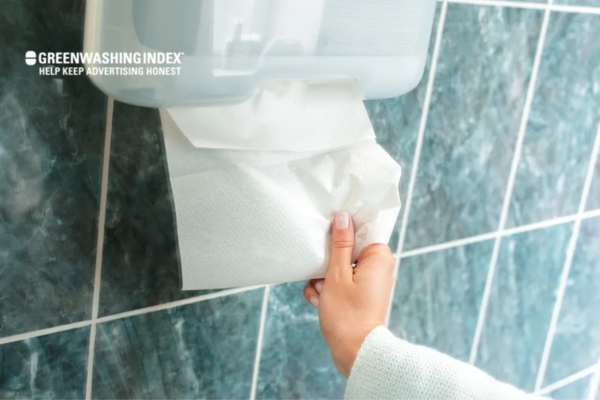
Self-Awareness Check
The first thing I do is pay attention to my own habits. I watch how often my hand goes for a paper towel during the day. To get real specifics, I keep a little note or tally chart close to where the paper towel roll used to be in my kitchen.
- Morning coffee spill? Tally.
- Are you wiping down countertops? Another mark on the chart.
- Drying hands after a rinse? Add another.
By tracking each grab for a day or even throughout a week, I end up with cold, hard facts on just how much I rely on these throw-away helpers. Often, what we measure, we manage better. Seeing the numbers tallied up can be an eye-opener and motivates me to make changes.
Establishing New Habits
Once aware of my usage, it’s time for me to form new habits—eco-friendly changes that become part of my daily life. Here’s where bold tactics come into play:
- Replace paper towels with alternatives:
- Use cloth towels: These are washable and reusable. Keep them in easy spots around the kitchen and bathroom.
- Invest in microfiber cloths: Excel at cleaning spills; they don’t leave streaks behind.
- Try out sponges or dishcloths: They work well for cleaning dishes or wiping surfaces, too.
- Stop automatic reaches by changing locations:
- Move your alternative choices, like cloth towels, to where you used to store paper ones, so they’re easy to grab now.
- Put the less eco-friendly options (if still needed sometimes) away – somewhere not as easy to reach.
With each effort made towards these new practices and choices—I am stepping closer to living more environmentally friendly, softening my impact on our planet simply by reducing one habitual product from my everyday use.
Remember: Stopping isn’t just about cutting out—it’s also about substituting wisely and forming lasting habits that align with green living practices!
Also Read: Paper Bags Recycle: A Must-Know Sustainability Guide
Practical Alternatives To Paper Towels
In my quest to stop using paper towels, I found many alternatives that help reduce waste and are kinder to the environment. Here’s a look at some cloth options that can take the place of paper towels in your home.
Reusable Cloth Options
When it comes to moving away from paper towels, reusable cloths are my go-to. There are several types I’ve discovered:
- Microfiber Cloths: These are great because they pick up dust and spills very well. Unlike paper towels, you can use them many times. After you’re done with your cleaning task, just wash them, and they’re ready for another round.
- Cotton Towels: Good old cotton is very absorbent, making these cloths perfect for drying dishes or wiping wet surfaces. They, too, can be washed and reused countless times.
- Old T-Shirts: Instead of throwing away old t-shirts, cut them into squares and use them as rags. They work pretty well for messy jobs or cleaning around the house.
- Tea Towels: Generally made from linen or cotton, tea towels are not only good for handling hot plates but also excellent for drying things because they don’t leave any lint behind.
- Flannel Wipes: Soft on surfaces but tough on dirt, flannel wipes can be a gentle alternative to abrasive paper towels.
Each of these cloth options saves money over time since you buy less and use more repeatedly compared to single-use paper towels.
Technology Aids
Even technology has stepped up to help reduce our dependency on paper products. Here are some innovative solutions:
- Robotic Vacuums: I was amazed by how robotic vacuum cleaners keep floors clean without the constant need to wipe up dirt with a paper towel first.
- High-Efficiency Hand Dryers: Found in public restrooms, these dryers dry hands fast without the need for paper products.
- Steam Cleaners: Uses just water! Steam cleaners can sanitize surfaces, which may normally require lots of scrubbing with a disposable towel.
These tech-based solutions contribute significantly when I want to do away with excess waste created by home cleaning chores!
By embracing reusable clothes and cutting-edge technology in our daily routines, we take an important step towards green living practices. It feels good to make environmentally friendly choices because it means doing something positive for our planet!
Also Read: Greenhouse Cooling Tricks: Your Ultimate Guide
Overcoming Common Challenges When You Stop Using Paper Towels
When I decided to stop using paper towels, I hit a few bumps along the way. Let me share some tips on how you can overcome these common challenges.
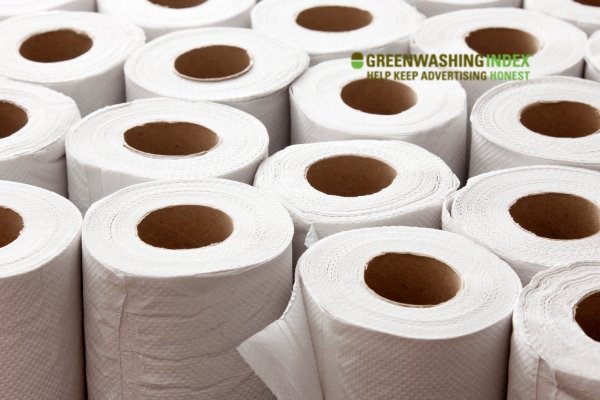
Inconvenience vs Sustainability
The biggest challenge I faced was the tug-of-war between convenience and my sustainability goals. It’s so easy to grab a paper towel for spills or cleaning, but every time I did, it bugged me to think of the waste piling up in landfills.
How did I combat this mindset? Well, first off, I made sure that more convenient and eco-friendly options were always at hand. Instead of hiding my cloth rags under the sink, a neat stack came out right by where the paper towel holder used to be. This simple switch made reaching for a reusable option just as easy.
Another thing that helped was setting up a small bin under the sink for dirty clothes. This meant that when they’re used up, they don’t need to be an eyesore on the counter or a trip away from being washed – it’s one drop away into the bin!
Lastly, changing habits takes time and mindfulness. At first, when my reflexes had me almost reaching for non-existent paper towels, I’d gently remind myself: “Hey, there’s a better choice.” Repeating this made it become second nature.
Social Pressure & Norms
Moving past what is considered “normal” in kitchen use takes some guts at times – especially when friends or family don’t quite understand why you want to stop using paper towels.
To tackle social expectations smoothly:
- Stay confident in your decision – When someone raised an eyebrow or questioned why there weren’t any paper towels around at my place, telling them about my aim to reduce household waste led to some interesting conversations instead.
- Be prepared with alternatives – Keeping those handy cloth rags visible and available showed anyone who stepped into my kitchen that not only was it doable but practical, too.
- Make it inviting! – A fun tip: use bright or patterned fabric for your cloth alternatives! It turns heads and often sparks curiosity — before you know it, your choices might even inspire others!
At times we may unconsciously follow what everyone else is doing just because it seems like ‘the way things are’, but remember: change begins with individual actions like yours and mine. Making environmentally friendly choices leads us toward greener living practices collectively!
In essence, embrace change with open arms by finding new ways to be kinder to Earth right from our kitchens — ditching paper towels can spark more eco-friendly lifestyle choices down the road!
Also Read: Eco-Friendly Paper Towels: A Composting Guide You Need
Educational Action Plan To Stop Using Paper Towels
Moving towards an eco-friendly lifestyle has many parts. One part is to stop using paper towels. Now, paper towel alternatives are out there, but how do I get my family on board? Here’s how I plan to engage everyone at home:
Engaging Family Members
Get Everyone Talking:
The first step is a family meeting. I explain why it’s important to reduce household waste and save trees. This can be a fun chat over dinner.
Show and Tell:
I show them the alternatives like reusable cloths, cotton napkins, or microfiber towels. We touch them, see how they work, and talk about why they are better for the planet.
Make it a Game:
Kids love games! So we might have challenges like ‘Who can go the longest without using paper towels?’ Winners get something special, like picking the next movie we watch.
Assign Responsibilities:
Each person gets their own cloth napkin or towel. They’re in charge of keeping it clean, which makes them feel involved in this green living practice.
Community Influence
Your actions can reach beyond your home, too. Here’s what I’ve found that works:
Lead by Example:
When friends come over and notice no paper towels, they ask questions. This opens up a friendly talk about environmentally friendly choices.
Community Projects:
Joining or starting a local group focused on reducing waste helps spread the message wider.
With these steps, stopping the use of paper towels becomes more than just my personal goal – it turns into a collective effort!
FAQs
How long does it take to adjust fully when you aim to stop using paper towels?
Getting used to not having paper towels can take a few weeks. It’s about forming new habits and remembering to grab the alternatives.
Are there any hygienic concerns when quitting paper towels?
No major worries if you clean cloth alternatives properly. Just wash them regularly and keep them dry to prevent germs from spreading.
What are some storage tips for cloth alternatives in place of stacks of disposable towels?
For storing cloth options, use baskets or drawers close to where you’d normally reach for paper towels. Keep them folded nicely so they’re easy to grab.
Conclusion
I understand the many efforts it takes to choose to live greener. When I decided to stop using paper towels, it wasn’t just about saving trees or conserving water; it was about committing to an eco-friendly lifestyle and reducing my household waste. Navigating this change requires awareness, effort, and a willingness to embrace new practices and alternatives.
Key Takeaway Points:
- Embrace an eco-friendly lifestyle by cutting down on paper towel usage.
- Understand the significant environmental impact of paper towel production.
- Develop self-awareness about your paper towel habits and strive to establish new, green living practices.
- Experiment with cloth options and tech aids as practical paper towel alternatives.
- Stay consistent despite the challenges posed by convenience, social pressure, or norms.
- Involve family and community in your environmentally friendly choices for greater impact.

